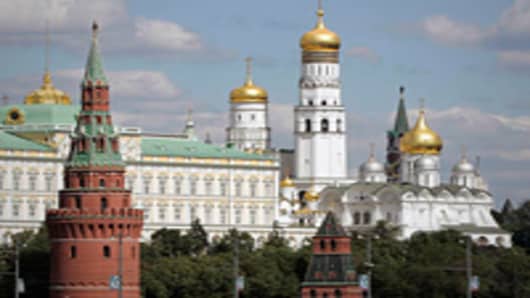For the first time since the end of the Soviet Union, the country has broken the back of inflation, with rates now in single digits for the past year and likely to be under 6 percent in 2010.
This allows consumers borrow at reasonable rates (mortgage rates are 13 percent and falling), businesses can borrow to invest in rubles and at low maturity (we expect the average duration of the domestic bond market to double by the end of the year), and money is encouraged to stay at home.
Meanwhile, Russia still has tremendous potential, as a market with 140 million consumers but with penetration levels for most goods and services at well under half of those in Western Europe.
For example, mortgage penetration is 3 percent of GDP, and only 20 percent of people have cars. Service sectors are still in their infancy, with retail, restaurants and broadband companies looking forward to many years of high growth. The transformation that we have seen take effect so dramatically across Eastern Europe over the last twenty years still has a long way to run.
We forecast 5 percent real GDP growth in Russia for the next few years, with earnings-per-share growth of more than 40 percent this year and 20 percent in 2011.
The foundation for this story is of course oil, and an oil price of more than $60 is now necessary to keep the current macroeconomic parameters of the country on track. However, high oil prices are in large part a play on the continued rise of China, which is perhaps a rather better bet than most other risks in our uncertain world. Russia is seizing this opportunity to improve its delivery infrastructure by building pipelines, roads and ports in the east; it is notable for example that in Russia it was the Far East Federal District alone that was able to grow during the crisis. Such investments will help create more consumers with disposable income, as well as provide an infrastructure for other businesses to use as they enter this market.
Despite this solid foundation for future growth, investors remain nervous: The RTS index remains the cheapest among major markets, with a 2010 price-to-earnings ratio of 8 and a price-to-book ratio of 1.1. The market continues to track the oil price, and we are thus far spared the enthusiasm that has driven the other BRIC markets.
In this contrast we see opportunity: As growth in Russia is compared with stagnation in Europe, we expect to see more capital flow to the East, into Europe's bright light of growth.
_________________________
Kingsmill Bond is chief strategist at Troika Dialog. In this position, he is responsible for Russian and CIS Strategy in Troika Dialog's Research department. Mr. Bond has over 15 years' experience in financial and strategic analysis. His major focus has been the emerging markets in general and Russia in particular, where he lived and worked from 1993 to 1998. Prior to joining Troika Dialog, Mr. Bond was at Deutsche Bank where he was Head of GEM and EMEA Strategy and was ranked number one by Institutional Investor for EMEA strategy.


